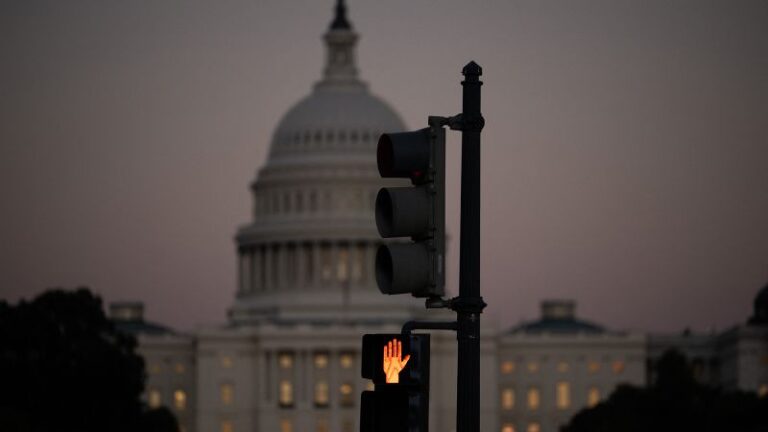The Ongoing Struggles of Federal Contractors Amid Government Shutdowns
Countless federal government contractors are facing dire circumstances as political divisions continue to grip Washington, DC. Unlike federal employees, these contractors often do not receive back pay when the government reopens after a shutdown, leaving them vulnerable to financial distress.
Low-wage service workers, including cleaners, janitors, security personnel, and cafeteria staff, are particularly affected. This essential workforce makes sure government buildings remain operational, yet they often find themselves without resources to sustain their families during shutdowns.
Personal Stories of Struggle
Audrey Murray, a 65-year-old cleaner at the Smithsonian Museum of American History, has dedicated nearly thirty years to her job. In a tearful conversation with CNN, she expressed her concerns about the repercussions of the shutdown on her family.
“It’s so sad that they think they can play with people’s lives,” Murray shared, highlighting the emotional toll on her and many others.
Murray elaborated on her worry about her children’s well-being: “I don’t know how I’m going to feed my kids or pay my mortgage. It’s not about me. I don’t care if I don’t eat, but I want them to.”
Single Parents Facing Uncertainty
Tiara Roberts, a single mother of three from Maryland, also finds herself in a predicament due to the government shutdown affecting her contract job as a security guard at a Smithsonian museum. Her reality is compounded by the challenges of raising young children, including a 6-month-old and a 3-year-old.
“This affects me to the extreme. It really triggers me,” she stated. “I have a lot on my plate already, and this is just an added-on stressor.”
Concerns About Financial Stability
Maria Madonado, another single mother hailing from New Carrolton, Maryland, works as a contracted cleaner at the IRS headquarters. She voiced her anxieties regarding the financial implications of the shutdown through a translator, indicating her fear of falling behind on bills.
“It’s really strange because you think you’re more secure in a government job than in a regular job,” Madonado remarked. “And today I realized that’s not the case.”
Conclusion: The Human Cost of Political Dysfunction
The impact of government shutdowns extends far beyond politics; it deeply affects the lives of everyday workers who rely on these jobs to support their families. As the political landscape evolves, it is crucial to recognize and address the human cost borne by federal contractors and their families.
For more insights into how government shutdowns are impacting these dedicated workers, stay tuned for ongoing coverage.
